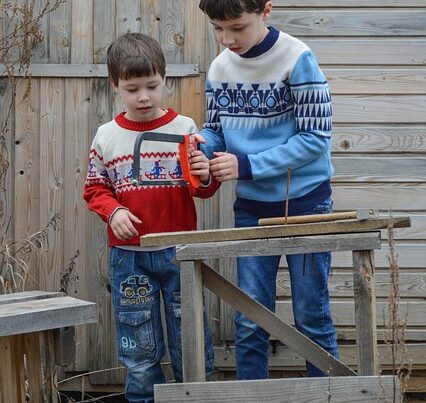
Gentle Parenting and Bowen Theory: How Differentiation Can Make a Difference
What Is Gentle Parenting?
Gentle parenting is an approach that emphasizes empathy, respect, emotional attunement, and consistent communication. Rather than punishments or coercion, it encourages positive guidance, age-appropriate expectations, and validation of feelings. Parents aim to create a secure, emotionally responsive environment that fosters trust and cooperation.
Core gentle parenting principles include:
- Emotional validation and empathy
- Clear, consistent boundaries
- Open communication
- Teaching emotional regulation
- Modelling calm responses
But while gentle parenting promotes emotional connection, it can sometimes fall short if the parent struggles with anxiety, reactivity, or unclear boundaries. This is where family systems theory makes the difference.
Bowen Family Systems Theory and Parenting
Bowen Family Systems Theory (BFST) views the family as an emotional system. One key idea is differentiation of self —the ability to stay calm and think clearly in emotionally charged situations. It means staying connected without being emotionally fused, and responding based on principles rather than reactive emotions.
What is differentiation of self in parenting?
- Managing your own emotions without becoming overwhelmed
- Setting boundaries based on principles, not emotional reactions
- Understanding your child’s feelings without absorbing their emotions
- Staying calm during conflicts while maintaining connection
Differentiation strengthens gentle parenting by helping parents avoid emotional over-involvement or emotional distance. Both get in the way of effective parenting.
How Differentiation Improves Gentle Parenting
Parents with higher levels of differentiation are better able to:
✅ Stay Calm Under Stress by regulating their anxiety and avoiding emotional outbursts.
✅ Set Clear, Consistent Boundaries: They use fact-based reasoning rather than reacting out of fear or guilt.
✅ Respond with Intention: Instead of reacting impulsively, they act based on thoughtful values.
✅ Model True Empathy: They connect with their child’s feelings without becoming emotionally flooded.
Gentle Parenting Examples: Differentiation in Action
Example 1: Homework Resistance
❌ Low Differentiation: Fear that the child will be a “failure” drives emotional reactivity. The anxious parent become authoritative, angry, or caves in.
✅ High Differentiation: The parent stays calm, listens, discusses concerns, and guides the child toward a plan—without losing authority. They share their hope for their child’s success without being reactive.
Example 2: Teen Breaks Curfew
❌ Low Differentiation: Harsh punishments, negative emotional lectures, or withdrawal. The parent’s safety concerns are anxiety-driven rather than fact-based.
✅ High Differentiation: Clear rules, calm conversation, and consistent, non-punitive consequences. The parent also re-evaluates whether their safety concerns are objective and age-appropriate.
Gentle Parenting Boundaries: Why Differentiation Supports Success
A well-differentiated parent can balance being both protective and permissive, depending on the situation. They are better able to:
⭐ Reduce power struggles and emotional drama
⭐ Model more fact based thinking for their children
⭐ Build relationships based on trust, not fear or distrust
⭐ Encourage healthy autonomy and responsible interdependence as children grow
Children raised by more differentiated parents often feel more secure, because their caregivers stay steady even when emotions run high.
How to Practice Gentle Parenting with Differentiation
Improving differentiation is a lifelong process—but it’s worth it.
✨ Reflect Regularly: Notice when you’re emotionally reactive. Pause before responding. What triggered your reaction?
✨ Define Your Principles: Clarify your values and parenting goals. What kind of parent do you want to be?
✨ Communicate Using “I” Statements: Avoid blame. Say, “I’m not okay with that behaviour,” rather than “You’re being bad.” It’s the action, not the child that is the issue.
✨ Stay Connected, Not Fused: Encourage your child’s growing autonomy. Love and connection don’t require constant emotional closeness.
✨ Practice Calm Boundaries: Let consequences teach, not punish. Discipline should be about teaching, not retribution.
Gentle Parenting Techniques That Work
When setting gentle parenting boundaries, managing self is the key:
- Stay emotionally regulated – Your calm becomes their calm
- Be clear about expectations – Confusion creates anxiety
- Follow through consistently – Reliability builds trust
- Explain the ‘why’ – Understanding increases cooperation
- Validate feelings first – “I see you’re upset AND we still need to…”
Reflective Questions for Better Gentle Parenting
- When was the last time you reacted emotionally instead of responding thoughtfully?
- What values guide your parenting decisions?
- How clearly do you communicate rules using “I” statements rather than “you should” positions?
- Can you identify situations where more calm and clarity would enhance your gentle parenting?
- How would your parenting change if you focused more on your principles than on your child’s reactions?
These are great questions for working on self in any relationship. Don’t make your child your only teacher! See an expanded list here.
Is Gentle Parenting Right for Your Family?
Gentle parenting with differentiation works because it:
- Builds emotional intelligence in both parent and child
- Creates secure attachment without emotional fusion
- Teaches children to self-regulate through modelling
- Maintains authority while respecting the child’s personhood
Final Thought: Differentiation Is the Missing Link in Gentle Parenting
Gentle parenting is powerful—but only when parents can stay grounded in the face of emotional intensity. That’s where Bowen Theory offers a deeper toolset. Differentiation lets you offer both love and structure without losing yourself in anxiety or reactivity. Shifting the focus away from the child and onto the parent AND the parent’s partner relationship was that Dr. Bowen would often recommend. Without the appropriate level of self management, gentle parenting can turn into anxious child focus parenting.
As a parent that has been working on this for years: It ain’t easy. But it’s worth the work, and it makes a difference.
Ready to transform your gentle parenting approach? Understanding your family’s emotional patterns and developing better differentiation can create lasting positive change for both you and your children.
Dave Galloway
I appreciate your interest in thinking systems.
You can reach me at dave.galloway@livingsytems.ca
For more on Bowen Family Systems Theory, go here.
Check out our podcast series on Spotify or YouTube.
Yoo might find this list of reflective questions for parents helpful.
Dave Galloway has been a student of Bowen Family Systems Theory for over 20 years. He has presented at conferences and published in the Family Systems Journal. For the last two years he has been a co facilitator of two training programs with Living Systems. He has a special interest in emotions, neurology, and family systems.


